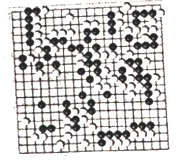题目内容
【题目】阅读下面的短文,根据短文内容回答问题。
Go, commonly known in China as weiqi, is a board game for two players that needs logical (逻辑的) strategies. To win, the player must use black and white playing pieces to surround more field than the other player. The game was invented in China more than 2,500 years ago. It enjoys a wide fan base, mostly in East Asia—but it is becoming more popular in other areas of the world.

Schreiber, vice chair of Berlin Go Association, was introduced to the game 16 years ago, but thought the game rather boring at first. Similarly, Urban, chair of Berlin Go Association, accidentally discovered a book on Go on his mother’s bookshelf when he was 37 years old. “I tried to understand the rules because I love board games and I did not get it,” added Urban. But they both found the game more and more interesting after practice. “It’s like speaking to another but with your hands. You make a very direct message,” explained Schreiber.
Schreiber recommended children learn Go because he believed it could be beneficial for them. “They learn that there is always someone stronger and they learn that it’s okay to lose. They learn how to improve from their mistakes and say tomorrow will be better than today,” he explained.
To the experienced players, Go can be very addictive, as it carries meanings not just in leisure, but also in culture. Many are too quick to judge other people’s cultures. Confucius said, “Tell me, I’ll forget; Show me, I may remember; Involve me, and I will understand.” With Go, people only get stronger if they play against different players. With culture, one need ot go and talk to people, even better if in their language. If you can’t, maybe it’s enough to use the Go board as the language.
As cooperation between China and Germany deepens in many aspects of life, efforts have been made to further popularize Go in Europe. The European. Go Congress has been hosting annual competitions since 1983. Training courses are also offered, and professional players from China are invited to deliver lectures for game loves in Europe.
【1】When was Go invented in China?
【2】How did Schreiber and Urban feel about Go after practice?
【3】Why did Schreiber recommend children learn Go?
【4】What has happened as a cooperation between China and Germany deepens?
【答案】
【1】(Go/It was invented in China ) more than 2,500 years ago.
【2】They both found the game more and more interesting (after practice).
【3】Because he believed it could be beneficial for them.
【4】Efforts have been made to further popularize Go in Europe.
【解析】
本文是一篇说明文,介绍了围棋的起源以及在欧洲的发展。
【1】细节理解题。根据第一段中的“The game was invented in China more than 2,500 years ago.”可知,围棋是2500多年前在中国发明的,故答案为:(Go/It was invented in China ) more than 2,500 years ago.
【2】细节理解题。根据第二段中的“But they both found the game more and more interesting after practice.”可知,经过练习,他们(施赖伯和厄本)都发现这个游戏越来越有趣,故答案为:They both found the game more and more interesting (after practice).
【3】细节理解题。根据第三段中的“Schreiber recommended children learn Go because he believed it could be beneficial for them.”可知,施赖伯建议孩子们学习围棋,因为他认为围棋对他们有好处,故答案为:Because he believed it could be beneficial for them.
【4】细节理解题。根据最后一段中的“As cooperation between China and Germany deepens in many aspects of life, efforts have been made to further popularize Go in Europe.”可知,随着中德两国在生活各个方面的合作不断深入,中国已努力在欧洲进一步推广围棋,故答案为:Efforts have been made to further popularize Go in Europe.

 口算题卡加应用题集训系列答案
口算题卡加应用题集训系列答案 综合自测系列答案
综合自测系列答案





